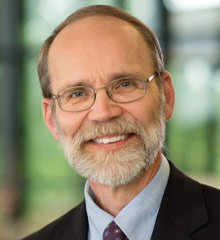Commentary on James 2:1-10 [11-13] 14-17
The second chapter of James offers a far-reaching treatment of the life of faith.
The passage begins with a question about what faith actually is (James 2:1). In reflecting on the first chapter of James last week, we noted that the author is concerned about an understanding of faith that is too small. People may want to reduce faith to a series of statements that people profess to believe, but for James, faith is what is operative in a person’s life. People act on the basis of what they believe to be true. So if people say one thing but do something else, James would say their actual faith is the faith that underlies their actions. People must believe in something if they are to act at all. The question is whether the faith that actually shapes their lives is faith in Jesus Christ or something else.
Social class is the issue that James uses to get at this question (2:1-7). He points out the common human tendency to show deference to those who show visible signs of wealth and disdain for those who seem to be lower class. The value in the illustration is that it is such a commonplace occurrence. Attention to social class was part of the world in which the epistle of James was written. Wealth and influence typically went together, and those who had wealth expected to be welcomed and to receive certain privileges. It was widely understood that lower class people did not deserve the same respect.
Christians in North America may not think of social class as a problem, yet it is worth asking how comfortable the people in our congregations are when encountering people who visibly belong to a different social class. Networks of friendships often run along the lines created by income levels, education, and, professional status. Perhaps we do not say to a poorly dressed person, “Stand there,” or “Sit at my feet” (2:3), but we may well leave them standing by saying nothing at all.
By asking whether character really follows class lines, James does his best to mess up the unspoken assumption that the wealthy person is good and the poor person is bad. His goal is not to create a simple role reversal in which poverty automatically means virtue and wealth inevitably means vice. But he does point out how quickly assumptions break down if one asks whether faith has a place among the poor. Assumptions break down even more quickly by asking about the behavior of the rich. Are the rich ever self-serving, controlling, or obsessed with lawsuits that are designed to work the system in their favor? James assumes that the answer is “yes.”
At this point, James calls readers back to a central teaching of the faith: “Love your neighbor as yourself” (2:8). There is nothing remarkable in this. The gospels and letters of Paul lift up the centrality of this same command (Leviticus 19:18; Matthew 22:39; Mark 12:31; Romans 13:9; Galatians 5:14). What characterizes James’s use of the commandment is its practical application to ordinary life. He puts people in an uncomfortable position by pointing out that if you really believe in Jesus, you presumably believe that the commandment to love one’s neighbor is important. And if you believe that, then why would you be so solicitous toward those above you on the social scale and indifferent toward those below you?
James has a disconcerting way of pressing the question. He assumes that people can rationalize remaining comfortably within the confines of their social class. He assumes that people might think, “Well, ok, I see your point. But I do pretty well on the whole, so don’t bother me with this. I’ll try to keep most of the Ten Commandments and let the rest go.” James wonders, “So which commandments don’t count? Adultery is ok if you don’t commit murder?”
This brings him to the heart of the matter, which is a notion of faith that is too small (James 2:14-17). If faith is reduced to saying a few words like “I believe,” then the expression of faith can be reduced to a few words like telling a homeless person, “Have a nice day.” For James, faith begins with a word–the Word of God that gives us new life, as he said earlier (1:18). And if that Word from God gives people life, then those who live out that Word extend life to others. Faith is what is active in a person’s life, actively giving life to you and to those around you. If it is not active, it is not faith.
One might wonder, “Where is the good news in a passage like this one?” The passage is unrelenting in the way it goes after the question of what it means to live as a person of God, and it does not let people off the hook. One response is that James clearly spoke the good news in the previous chapter, where he spoke about the generous gifts of God (1:17-18). But another response is that James reframes the question. He wonders, “Where is the good news for your neighbor?” James wants the good news to be experienced–by each believer and through each believer to the many others who need a tangible expression of grace.

September 6, 2009